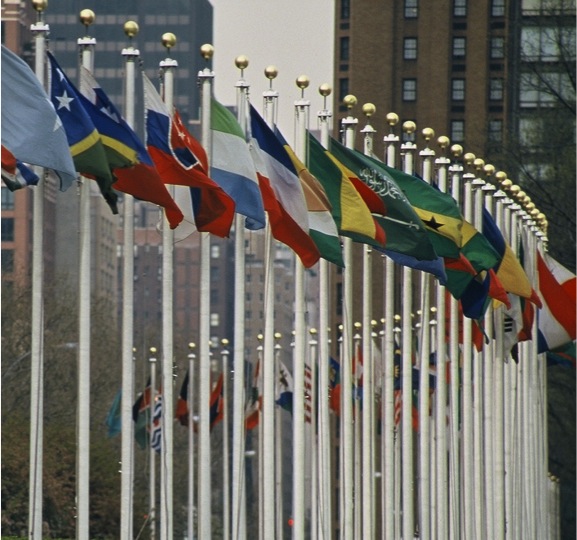-
Advocacy Theme
-
Tags
- Abortion
- Adoption
- Caregiving
- CEDAW
- Disability
- Domestic Violence
- Domestic Workers
- Harassment
- Healthcare
- Housing
- International/Regional Work
- Maintenance
- Media
- Migrant Spouses
- Migrant Workers
- Muslim Law
- National budget
- Parental Leave
- Parenthood
- Polygamy
- Population
- Race and religion
- Sexual Violence
- Sexuality Education
- Single Parents
- Social Support
- Sterilisation
- Women's Charter
AWARE goes to New York: the CSW (Part 2) – Oral statement
March 18th, 2015 | Gender-based Violence, News, Views
This is the oral statement AWARE prepared for the 59th session of the Commission on the Status of Women at the United Nations, held in New York (9 – 20 March). However, due to time and space constraints at the session, AWARE could not deliver this speech. We are publishing it on our website to emphasise the need for legislation prohibiting discrimination based on gender, sexual orientation or gender identity.
This oral statement was prepared on behalf of AWARE by Goh Li Sian, Leigh Pasqual, Vivienne Wee, Corinna Lim and Jolene Tan.
 In 1995, the Beijing Platform for Action stated that Governments should provide “constitutional guarantees and/or enact appropriate legislation to prohibit discrimination on the basis of sex for all women and girls of all ages”.
In 1995, the Beijing Platform for Action stated that Governments should provide “constitutional guarantees and/or enact appropriate legislation to prohibit discrimination on the basis of sex for all women and girls of all ages”.
In support of this agreement by all Governments of the world, we call upon Singapore’s Parliament to enshrine equality and non-discrimination for women under the law. This should be done by explicitly amending Singapore’s Constitution in order to afford equal protection before the law, regardless of gender, sexual orientation and gender identity.
Although Article 12 of Singapore’s Constitution guarantees to all persons equality before the law and equal protection of the law, discrimination is explicitly forbidden only on four grounds – “religion, race, descent or place of birth”. Gender, sexual orientation or gender identity is not explicitly protected against discrimination under the Constitution.
The Singapore Government has defended this lack of explicit recognition in the past. In its fourth periodic report to the United Nations’ CEDAW Committee, the Singapore Government reported that Article 12 of the Singapore Constitution stated that all Singaporean women enjoy equal rights as men. Furthermore, in response to a question from the United Nations’ CEDAW Committee, the Singapore Government argued that “while the legal basis for gender equality may not be as specific as the Committee would like, article 12(1) provides sufficient guarantee of equality to all Singaporeans”, regardless of “gender, sexual orientation, and gender identity”.
However, in a landmark case concerning the constitutionality of a law criminalising homosexual acts between men, Singapore’s highest court decided in 2014 that the Constitution in its present form forbids the state from engaging in discrimination only in relation to the specific grounds listed explicitly – that is, religion, race, descent, or place of birth. The Court emphasised that additional grounds could only be added by Parliament and not by statutory construction through the Courts, which means that protection against discrimination on any basis other than those explicitly identified cannot be assumed.
Since gender or gender identity are not explicitly mentioned in Article 12, women are simply not guaranteed equal protection by the Singapore Constitution. This flatly contradicts the Government’s previous reliance on the Constitution in responding to the CEDAW Committee and raises serious doubt as to whether the state is in compliance with its legal obligations.
There are also no laws specifically prohibiting private entities such as employers from discriminating on the basis of gender, except in relation to specific situations relating to maternity. An employer can thus, with impunity, sack a woman, refuse to hire or to promote her on the basis of gender.
The Association of Women for Action and Research (AWARE) thus supports the call stated in the 1995 Beijing Platform for Action for all Governments to provide “constitutional guarantees and/or enact appropriate legislation to prohibit discrimination on the basis of sex for all women and girls of all ages”. As we have shown in the case of Singapore, women can be guaranteed protection from discrimination only if their country’s Constitution is amended to do so explicitly and only if anti-discrimination laws are enacted.



